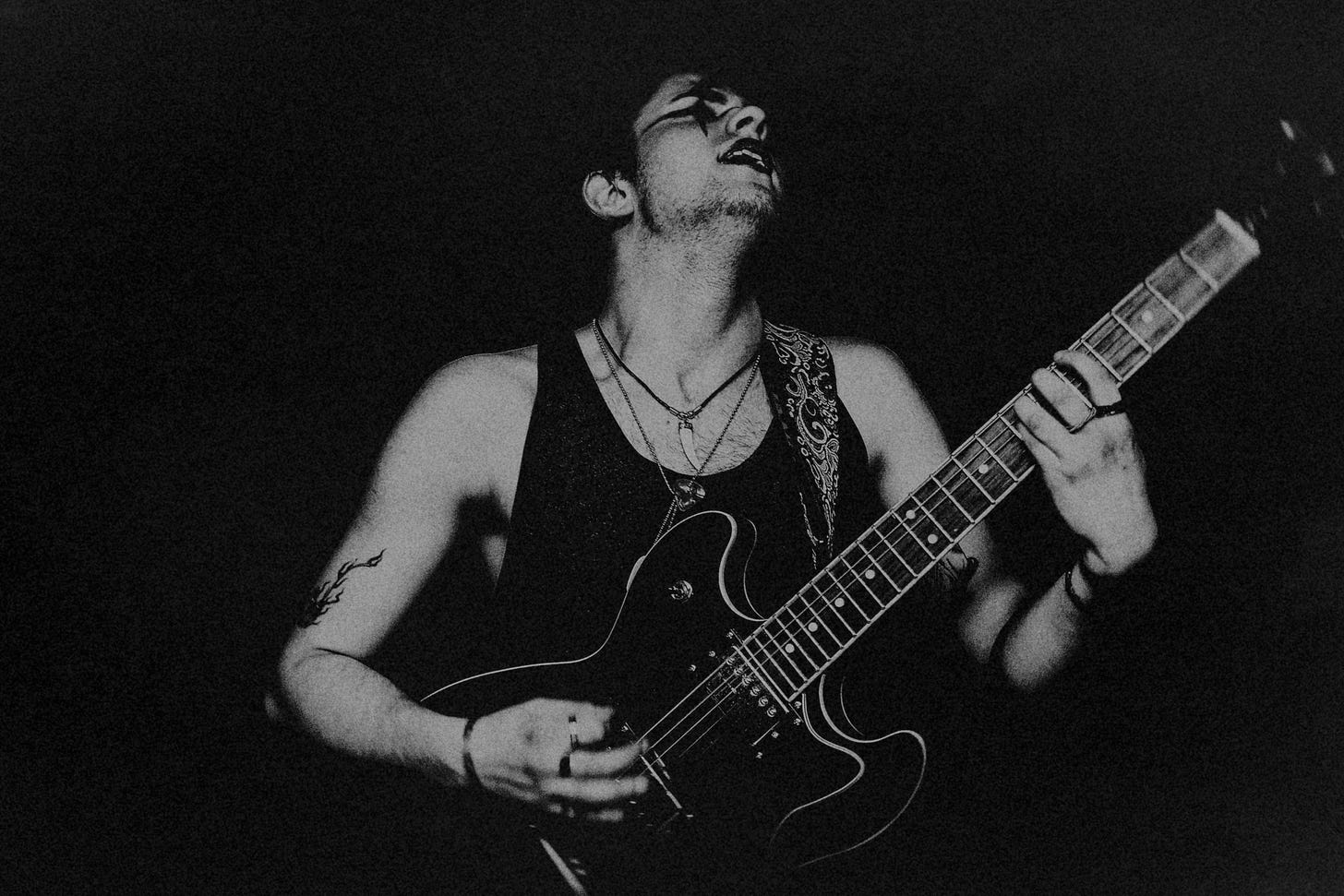The Sensitive Antennae of the Persevering Artist
Bringing Your Best Work Into the World.
“You’re too emotional,” my friend’s been telling me, “hypersensitive.” He says that’s why I got replaced as the composer for a hit TV show several years ago. He says that’s what compelled me to escape my record contract with Sony on a legal loophole in the early 90s. I could go on and on about all the reasons he’s wrong, but I won’t. The truth is, I am hypersensitive. I haven’t made a scientific study of it, but I’d say my antenna is several degrees more ticklish than most. To be successful at making art of any kind, you need an extra measure of sensitivity —actually, you need a mountain of it.
Beyond the technical skills, like the ability to play the piano or draw, the artist’s superpower is the capacity to feel acutely. It’s the emotional intake of life itself that comprises the building blocks of art. But here’s the paradox: to achieve any sort of success, whether commercial or personal, an artist must develop a knack for attenuating that emotionality. In other words, the same emotions that fuel the creative impulse are also the ones that cause an artist to become overly vulnerable to the opinions of others.
Having spoken to several artists over the years — artists from all genres, artists who are incredibly famous, and those who ought to be —I have never met a single one who isn’t concerned about what others think. It’s my opinion that when certain of them say things like, “I believe so strongly in my work that I’m untroubled by the opinions of others!” it’s not only untruthful but paradoxically, it’s said for the sole purpose of gaining the respect of the critics they profess not to care about. Like I mentioned, truly creative people have truly sensitive antennas.
There are three stages to the creation of art: You conceive the idea, you develop it, and finally, if you wish to make money from your art or have it displayed publicly, you must do the work of bringing it to the “marketplace.” To stay sane in the marketplace, artists must learn to turn down their sensitivity; anyone who’s tried knows how difficult that is.
If I were selling Firestone tires, for example, it would be so much easier than selling the wares of my inner life. If someone doesn’t like the tires I’m selling, so big deal. I don’t make them, and therefore, I’m not attached to them. Unlike with tires, when someone says they don’t like the music I write, it can, on some deep level, make me feel like my essential self has been rejected. Don’t think that just because I care about people’s opinions, it means that I’m writing songs just to score points. Quite the opposite, if I’ve written what I passionately feel, my whole being will be on the line!
Being thin-skinned to the inspirations around you and steeled to the hard realities of the marketplace is a paradox that’s painful and difficult to sustain. You’ll often hear people try to alleviate the sting by offering platitudes. “You’re so much more than what you create.” That’s trying to get me to disentangle my art from who I am. But I can’t.
That statement rings hollow to the one who’s doing the creating. “No one can make you feel bad about yourself except you.” Talk about blaming the victim. And it’s a lie if there ever was one. People can and do make you feel bad. Then there is this famously unhelpful one: “Whatever doesn’t kill you makes you stronger.” C’mon, Nietzsche, it can also leave you weeping in a fetal ball. This excess of emotion, this laid-bare sensitivity, both in regard to the creation of art and toward people’s opinions of it, is part and parcel of being an artist.
I know from experience that working in solitude (as opposed to isolation, solitude’s shadowy cousin) is where my creative flow state flourishes best. I’ve also found that having the support and friendship of fellow creators is a necessary part of finding and maintaining that flow state. I don’t need a lot of supportive people, just a handful. But the input they give me bolsters me and gives me the strength to persevere. But what exactly does perseverance entail? What does it look like to an artist?
To me, it means waking up each day, not obsessing over quantitative measurements like Twitter followers, ticket sales, or Facebook likes. Rather, it lies in seeking the emotions that inspire me to create, drive me forward to what I consider beautiful, and push me toward what I believe I was born to accomplish with my time on earth. Those are the ticklish-antenna sensitivities that have quelled the destructive sensitivities of my ego and led me to the sensitive strengths of my own creative convictions.
“The truly creative mind in any field is no more than this: A human creature born abnormally, inhumanly sensitive. To him...a touch is a blow, a sound is a noise, a misfortune is a tragedy, a joy is an ecstasy, a friend is a lover, a lover is a god, and failure is death. Add to this cruelly delicate organism the overpowering necessity to create, create, create -- so that without the creating of music or poetry or books or buildings or something of meaning, his very breath is cut off from him. He must create, must pour out creation. By some strange, unknown, inward urgency, he is not really alive unless he is creating.”
— Pearl S. Buck







I love the solitude of being the writer writing and I desperately miss being the onstage performer performing.
I keep posting a comment to Sherman Alexie and it appears to be disappearing..